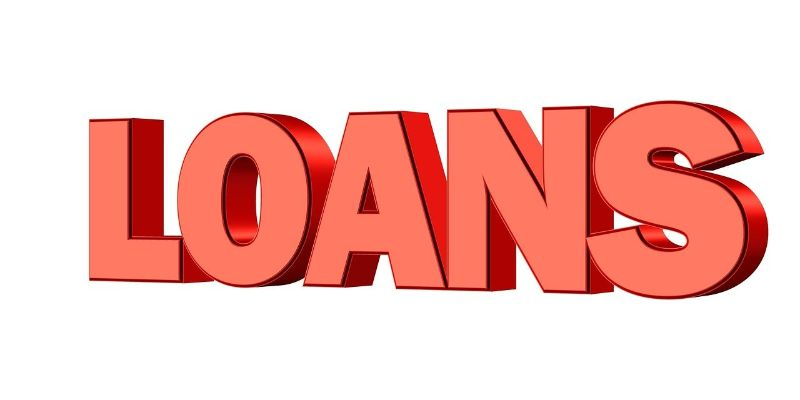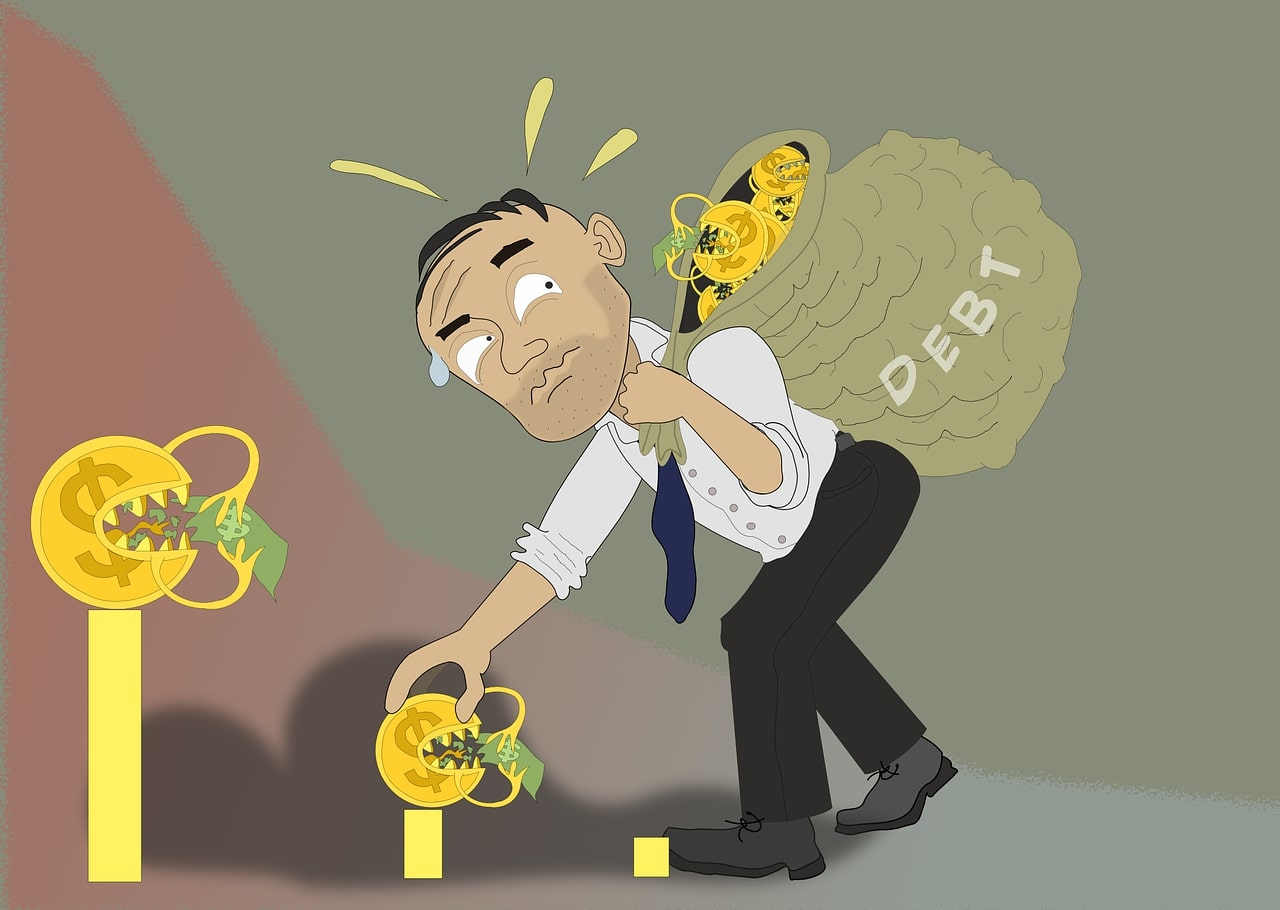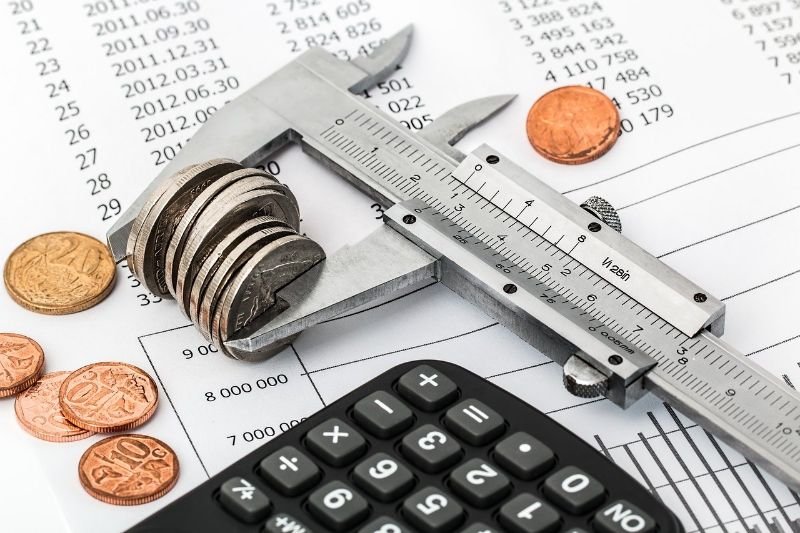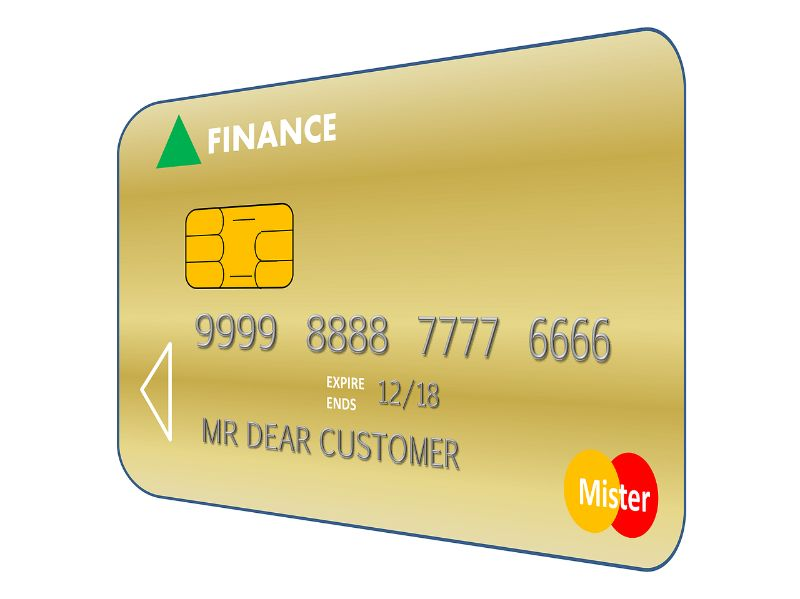Is it possible to build wealth without investing your own money? Absolutely! Today we explore how to use debt to build wealth in 8 simple ways.
Who hates being wealthy? Or should I ask, who doesn't love financial freedom?
Well, everyone wants to be able to do whatever they want, anytime, without thinking about cost limitations. At least I know I do! And that's why we wake up every morning, go to work, and do everything we can to try and cross that line – the wealthy line.
But, even with great plans and strategies, many factors hinder our progress. For instance, do you have the necessary capital to start a business or invest? Most of us don't.
But lucky enough, this shouldn't make you stop trying. If you didn't know, you could start building your wealth even without your own money. That's right! There are so many ways you can acquire credit to propel your projects and build wealth.
If that sounds like something you want, let's go on and uncover the best tips on how to use debt to build wealth.
How to Use Debt to Build Wealth? Best Tips

Someone may wonder, doesn't debt add more misery to your financial status? How is it possible to make this work in your favor?
The truth is debt can be detrimental to your finances. But that's because you might be using the wrong type of debt.
Usually, there are two types of debt – bad debt and good debt. Bad debt is usually the credit you acquire to buy assets that will depreciate with time. These attract huge interest rates and add no financial value to you in the long run.
On the other hand, good debt is the credit you take to acquire assets that appreciate in value, adding to your net worth in the long run. This way, while you'll certainly pay interest for it, the increase in your net worth is worth it.
The trick here is to leverage good debt and scrap off all your bad debt if possible. And with this understanding, let's now look at the possible ways you can leverage good debt to grow your wealth.
1. Debt Consolidation

Debt always seems to spiral out of control, especially if not handled well. And this can be so detrimental to your future financial goals.
In this case, the first step is acknowledging you have a problem. From here, find a way to get out of that debt as quickly as possible without putting yourself in more debt.
One of the best ways to do this is by consolidating all your debts into a single loan with a lower interest rate. This not only helps to reduce your interest payments but also enables you to get out of debt much faster and save you some money. And it eases your loan repayment burden allowing you to put your money to better use.
But, while this is a great way to get out of bad debt, it may not work for everyone. For instance, you'll need a good credit score to qualify for a lower interest rate. If your credit score is not too impressive, you might want to consider other options, like negotiating with your creditors or finding a balance transfer card with a 0% APR offer.
So, even as you apply for debt consolidation, you might also want to change your spending habits to improve your credit score.
2. Debt Snowballing
As we have said, getting out of bad debt is the first step toward building wealth. And debt snowballing can be an excellent strategy to reduce inefficient debt and improve your financial situation.
If you've never heard of debt snowballing, don't worry, you're not alone. This is a debt reduction strategy where you start by paying off your smallest debt first, then move on to the next one until you clear all those debts. For instance, you can start by paying off small credit card loans and clear the larger student and personal loans later.
While this method might take a lot of time to clear the debts, it certainly helps reduce your monthly debt repayment burden. And with time, you will be left with fewer debts to pay, which might give you room to start building wealth.
3. Proper Cash Flow Management

This is one of the hardest things to do for most people when it comes to finances. But if you want to use debt to build wealth, you'll need to get a handle on your cash flow.
Basically, cash flow is the difference between the money coming in and the money going out. So, you should ensure that your incoming cash flow is always higher than your outgoing cash flow.
This way, you'll have some extra money left to put into savings or investments. And with time, this will grow and help secure your financial future.
There are so many ways you can improve your cash flow. For instance, you can start by looking for ways to cut back on your expenses. Also, try to increase your income through side hustles.
Luckily, you can now use cash management platforms like Personal capital to keep tabs on your finances. Such apps make it pretty easy to budget, cut expenses, and manage your income.
4. Borrow to Invest: Make Use of Good Debt
Now, this is the best strategy to use debt to build wealth. In essence, you borrow money to buy assets that will increase in value in the future and get rid of inefficient debt.
For instance, you can take a personal loan to buy stocks or securities that you expect to grow over time. You can also invest in things like mutual funds, anticipating a good future return. This type of debt can be referred to as efficient debt.
However, don't just invest. Ensure that the anticipated ROI is higher than the interest charged on the personal loan. This way, the income generated can repay the loan and leave you something extra.
Remember, the goal is to use debt to make more money, not lose it. So, only invest in things you are sure will grow over time.
See related: Is it too late to invest in Bitcoin?
5. Buy Real Estate: Best Investment Strategy

Real estate offers a stable source of passive income for many investors. Unlike stocks and securities, which are a bit volatile, real estate tends to appreciate steadily in most cases. Unless there is an overall drop in property values, investing in real estate is almost a sure bet to creating wealth.
Whether you invest in residential, rental, or commercial properties, you can almost always make good money from it. Real estate properties usually appreciate with time, meaning even a residential property will earn you money if sold later.
The only drawback is that this type of investment needs a lot of money. But, with a good credit score, you can get a big personal loan or mortgage to finance your project. However, ensure that you know how to repay the loan without fail to avoid penalties or damaging your credit history.
How to Buy the Best Real Estate Properties
Of course, you'll need to be careful when choosing properties to invest in. Not all real estate investment opportunities are created equal.
Here are a few things to look out for when buying an investment property:
- Location: Location is key when it comes to real estate. Always go for properties located in growing or developed areas. This way, appreciation of the assets is almost guaranteed, whether you're selling or renting out the property.
- Type of Property: You can buy different real estate properties, from residential to commercial ones. And each type has its own set of risks and rewards. So, choose wisely depending on your goals and financial ability.
- Potential Rental Income: If you're planning to rent out the property, always consider the potential rental income. This will help you know if the property is worth buying or not.
- Maintenance Costs: All properties need some maintenance, whether a fixer-upper or brand-new construction. Always factor in these costs when evaluating an investment property.
6. Leverage your Credit Card Debt

Most people only see credit cards as a source of pay-later purchases. However, you can do more with that credit card – even build your wealth.
But how?
Firstly, your credit card can be a great option when building your credit score. Using your credit limit and repaying in good time improves your credit score ratings. This is because card credit companies submit your data to the three main credit bureaus, allowing them to rate your loan repayment capabilities.
As such, with a good credit score, you can easily acquire loans to invest or even start a business. In addition, you can use business credit cards to acquire equity for your business or even buy assets.
So, instead of just exhausting your credit card's limit with purchases that don't help grow your wealth, you can use it to make positive changes in your finances.
7. Try Margin Investing

Investing in the stock market is a great idea when trying to build wealth. But what happens when you don't have enough money to buy more stocks? This is where margin investing comes in handy.
Margin investing uses the money borrowed from a broker to purchase more stocks. For example, if you have $1,000 and want to buy $2,000 worth of stocks, you can request a margin loan. The broker will then lend you half of the amount needed so that you can buy the stocks.
Of course, there's always some risk when you borrow money to invest in stocks, especially since stocks are volatile. For instance, if the stock prices go down, you'll be required to add more money to your account to cover the loss. Also, you must repay the money you borrow with some interest.
However, if done right, margin investing can help you grow your wealth quickly without using much of your own money. But, ensure you've done thorough research on how this works and at least know how to evaluate the stocks.
8. Use Debt Recycling Strategy

Another investment strategy that can help you leverage debt to grow your wealth is debt recycling. This financial strategy incorporates the three main financial planning disciplines to help you come out of debt and grow your wealth.
These disciplines include:
- Early repayment of your home loan
- Creating an investment portfolio
- Reducing tax
Doing so will reduce your non-deductable loan (home loan) and, simultaneously, invest in a project that gives you money. However, this strategy is not as simple as some of the earlier-mentioned ones. And for this reason, you need a qualified financial adviser to help you make the right decision.
Usually, with debt recycling, you'll take money from your home equity and use it to invest in shares, managed funds, or even property. You'll be converting a debt that doesn't result in capital growth to one that guarantees income. However, remember that this is still a debt and should only be done if you're confident about repaying it.
In most cases, people choose to use this strategy when they access some extra cash – like an inheritance or work bonus. This way, they won't have to worry about putting all their own money into the investment and can take advantage of the tax benefits that come with it.
FAQ
Which are the best wealth-building strategies using credit?
It depends on your individual circumstances, including your age, employment status, investment goals, and risk tolerance. However, some popular strategies include using your credit card to build your credit score, margin investing, real estate investing, and debt recycling.
What are the best assets to invest in with debt?
Some of the best assets to invest in with debt include shares, managed funds, and property. However, stocks and securities are more volatile than real estate investments. As such, make sure you understand the risks before making any decisions.
Can I use my credit card to grow my wealth?
Yes! You can use your credit card to build your credit score and access investment loans. But, it's paramount to remember that all debts need to be repaid with interest, so only borrow what you can afford to repay.